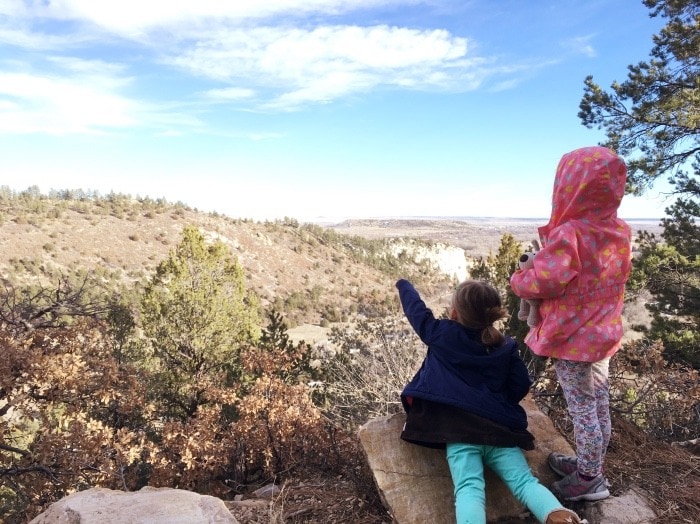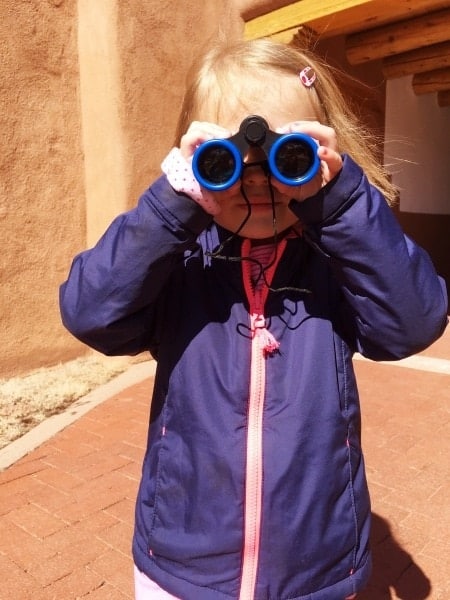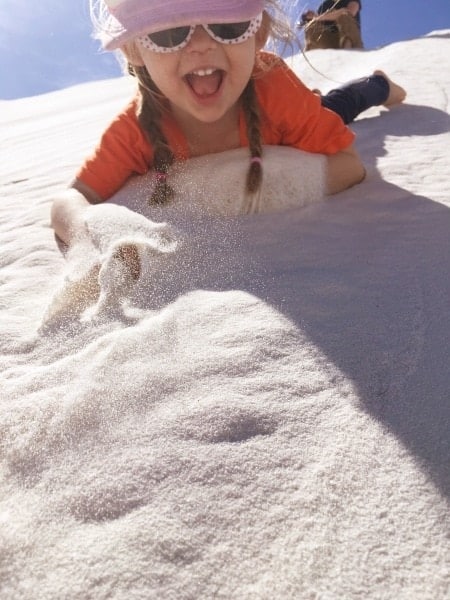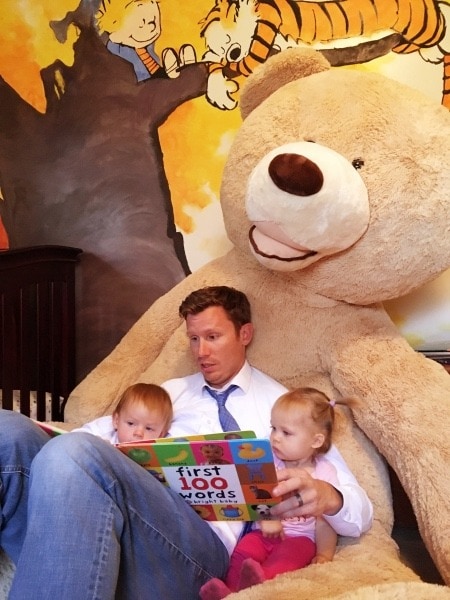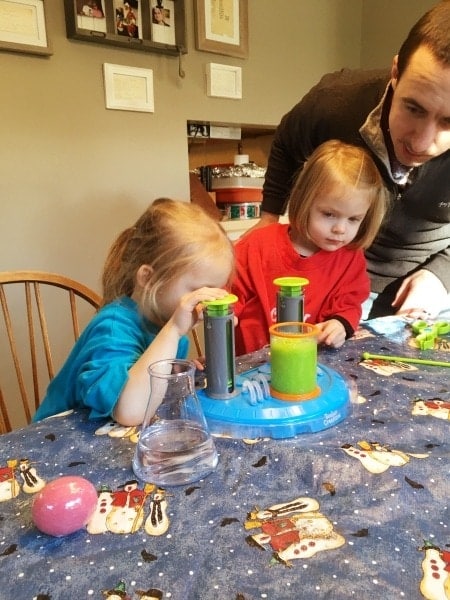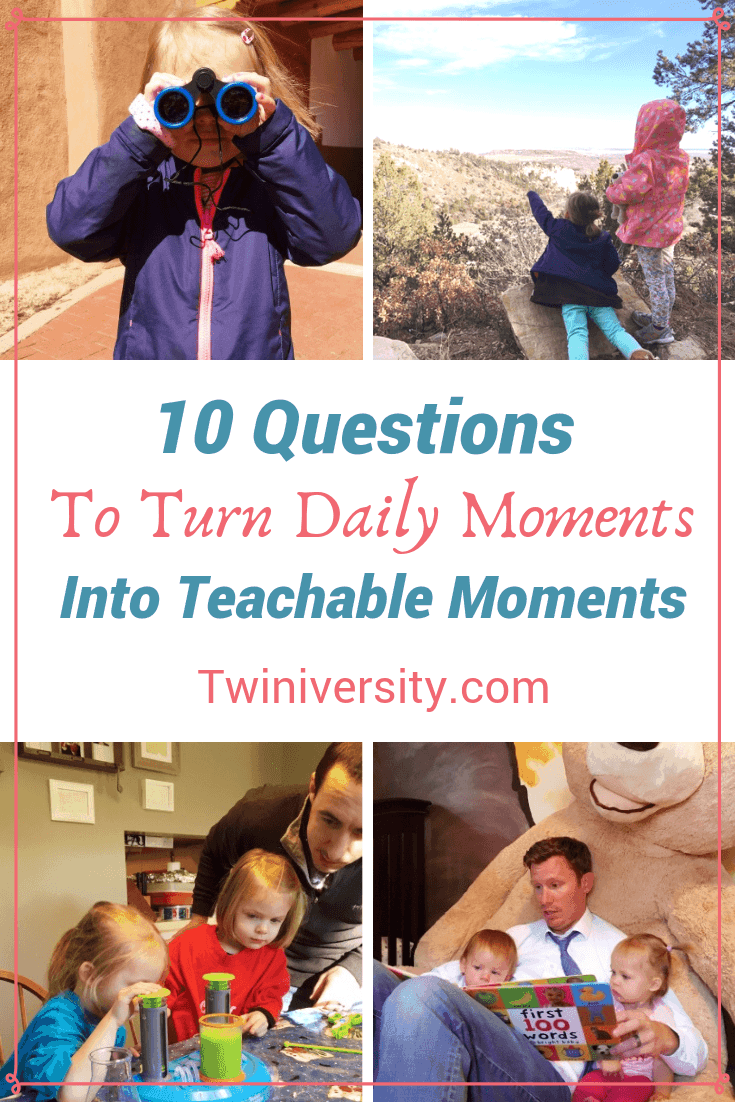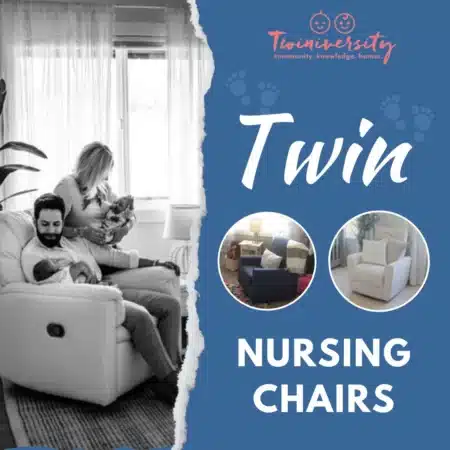Last updated on September 28th, 2021 at 01:35 pm
10 Questions to Turn Daily Moments into Teachable Moments
Everyone loves the feeling of learning something new and feeling smarter, but not everyone loves to sit and read for hours or go to formal classes. If we prefer the benefits of learning without the traditional structure as adults, how much more so do our kids love to learn without realizing they are learning?
Using intentional questioning to help children learn is a skill that I learned through my teacher education that fits beautifully into parenting. You can easily turn a day at the zoo into a biology discussion by harnessing teachable moments. A neighborhood bike ride can become math practice or a historical revelation about the founders of the city.
Don’t worry, this may sound like the complex art of teaching, but it’s really just taking the time to consider what is around you and the skills your child is working on academically. Here are 10 questions to help get you started for children of any age.
How could you answer that question yourself?
Skill: Resourcefulness
Children will seek out their parents to answer simple questions that they can easily find the answer to on their own. For example, my high school students will often ask questions about the schedule at school. Rather than rescuing them by giving them the answer every time, it can be helpful to teach students to search their email inbox and the school website to create their own calendar.
Sure it’s nice to not have to answer the same questions over and over every week as the adult, but it also gives young people a chance to build their independence. This can start with toddlers learning to look for their own toys before asking for help finding them.
How would you do that without the internet?
Skill: Problem-solving
Similar to the first question, remind children they can solve problems manually. Sure, it takes less time to say, “Hey Siri, how many feet are in three miles?” But to stopping find the conversion chart in your textbook and doing the multiplication yourself prepares you to think independently. It also prepares students for academics where they will not have access to our magic pocket-size computers.
How do you think _____ feels?
Skill: Emotional intelligence
Discussing the emotions of other people helps children use words to describe their own feelings and learn empathy. You can ask about characters in a book, movie, or friends to get your children talking about the different emotions that can come up in everyday life.
How far do you think that is?
Skill: Mathematics
The question of distance is one that is applicable at all ages and stages. Young children will be able to count steps. Elementary and middle school children will be able to estimate distances. High school students can begin to get more accurate estimations and use the metric system to practice conversions and consider the measurements that are used internationally.
What’s another way to explain that?
Skill: Vocabulary
This is a good way to challenge kids to use different vocabulary to explain something they are familiar with. My three-year-olds love the opportunity to explain an art project in multiple ways and it gives them a chance to add to their vocabulary about shapes, colors, and actions.
You may find that one twin can interpret the academic language on homework to help the other twin’s understanding. This helps with confidence, comprehension, and vocabulary all in one simple question.
Tell me about a good book you’ve read.
Skill: Reading comprehension
This assumes that your child is reading while also giving your child the opportunity to be an expert in the conversation. Open-ended questions let the child talk about the characters they love, the concept they learned, the twist in the story that excited them, or even complain about the boring assignments from school.
You can keep the conversation going by asking more or keep it short and end with an affirmation to your child for reading. For preschoolers, asking for a retelling of a story that was read to them is a great practice.
What do you predict the reaction to that event will be?
Skill: Science
This can be a social discussion of cause and effect: Ask your child how people will respond to different events and consider the social interaction. Or you can take it further with scientific reactions. What will happen if I add ice to the drink? What will happen to the sound when I speed up? What will happen to the cake batter in the oven? As the child grows academically and with confidence, the answers will employ greater complexity.
What’s the same and different about those?
Skill: Compare and contrast
Choose two things or people your children know well and see what ideas they come up with for comparing. Daniel Tiger teaches this wonderfully for toddlers with the song, “Find Out What’s Different and What’s the Same”. As your twins grow this will evolve to what’s the same and different about the presidential candidates or what’s the same and different about the colleges you applied to.
What pattern do you see?
Skill: Mathematics
Patterns are a part of everyday life and help our little ones make sense of the world around them. By simply asking what pattern they see we can encourage our children to look more closely at their environment.
You may have teenagers that can tell you about the patterns on Youtube with great insight or a toddler that can tell you about the patterns in their routine at preschool. Either way, adding the word “pattern” to your discussion and asking your children to make observations exercises mathematical thinking.
How can you do better next time?
Skill: Growth Mindset
The growth mindset is a buzzword in education that focuses on the idea that we all have the ability to grow intellectually. By asking this question you are helping your child to see the hope for a better sports game, test, social interaction, or creative project. It will also open the door for you to compliment the growth you have already seen in your child and point out ways to keep improving.
It’s all about finding a balance.
We have heard the negative effects of leaving your children in front of the TV for hours on end. And contrastly, we have heard the downfall of joining every academic class, club, and forcing too much additional education. Learning from the world around you can be the sweet spot in the middle where your children learn confidence and expand their knowledge of things that excite them.
Have fun with these teachable moments — teaching your children in activities you already do!
 Becca Heldreth is the mother to 18-month-old fraternal twin girls. She has a master’s degree in education and is currently able to teach from home. Her class of two toddler girls and one dog is quite an adventure. Lessons are certainly more focused on sharing and petting the dog gently than on factoring polynomials. Becca and her husband pass along their passion for the outdoors to their twins through trips to the bouldering room, hiking trails, and bike rides.
Becca Heldreth is the mother to 18-month-old fraternal twin girls. She has a master’s degree in education and is currently able to teach from home. Her class of two toddler girls and one dog is quite an adventure. Lessons are certainly more focused on sharing and petting the dog gently than on factoring polynomials. Becca and her husband pass along their passion for the outdoors to their twins through trips to the bouldering room, hiking trails, and bike rides.
Related Articles
Best Fine Motor Skill Development Toys
Creative Ways to Support Preschool Learning

